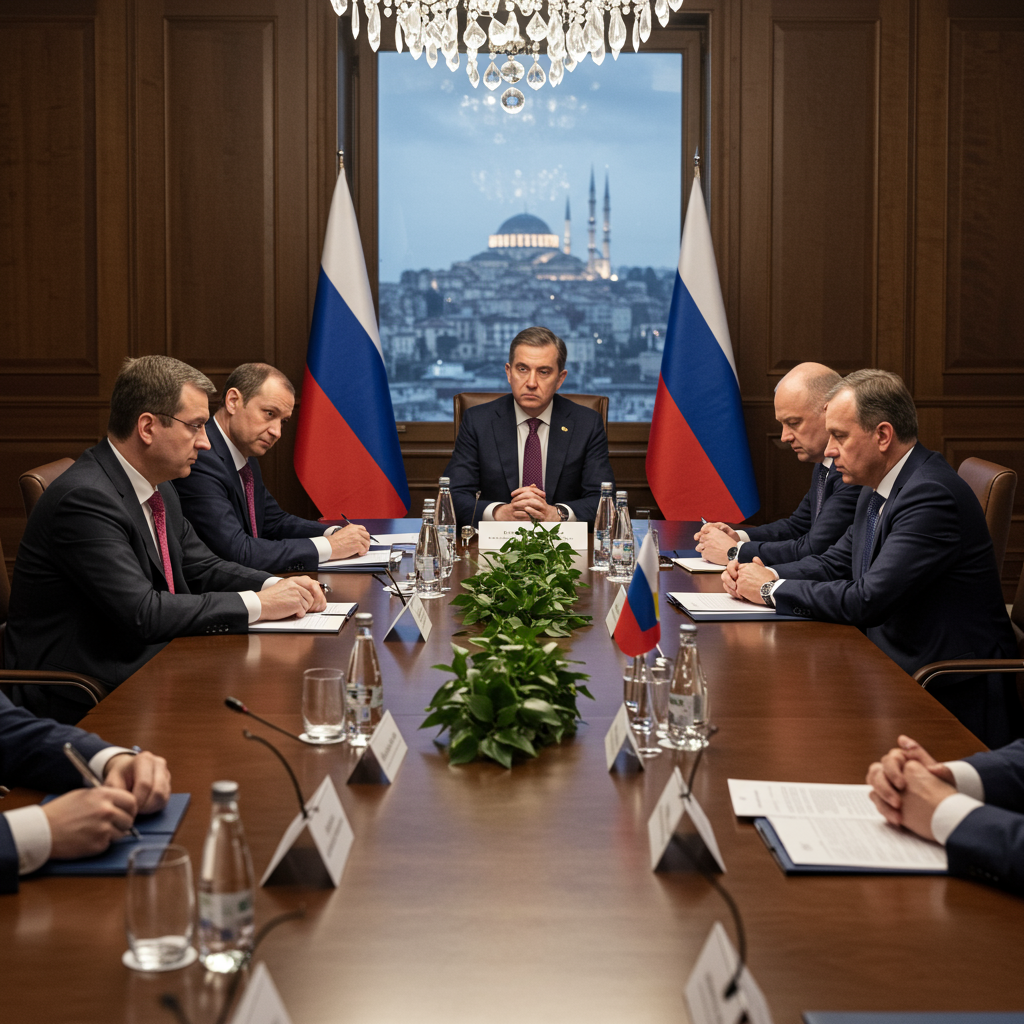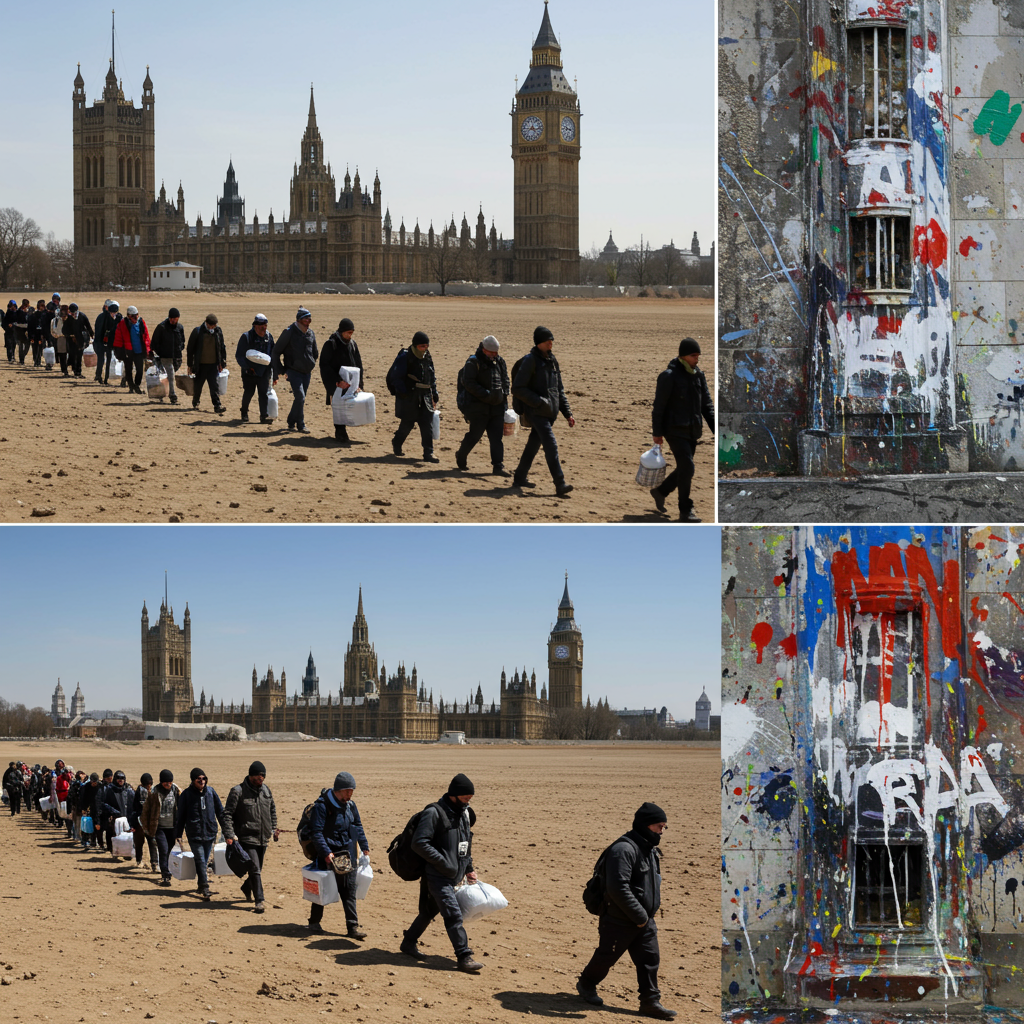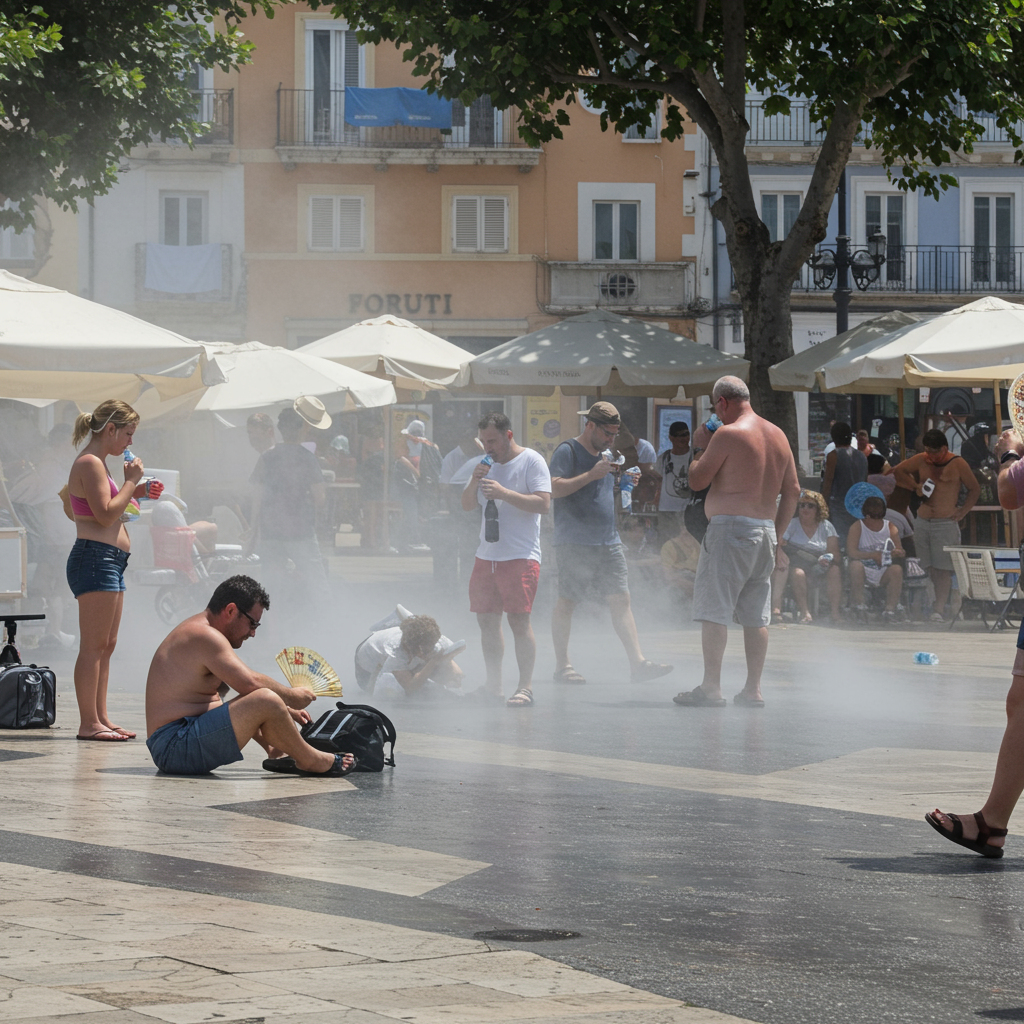Ukraine-Russia Peace Talks Yield Limited Results: No Ceasefire, but Prisoner and Body Swaps Agreed
Direct peace negotiations between Russia and Ukraine have once again concluded without a significant breakthrough on ending the conflict. The second round of talks, held in Istanbul, Turkey, lasting just over an hour, failed to achieve an agreement on a comprehensive ceasefire. However, the delegations did commit to further prisoner exchanges and the repatriation of fallen soldiers’ bodies, marking a limited but tangible outcome from the discussions.
Ceasefire Hopes Dashed as Key Demands Clash
Ukrainian negotiators confirmed that their primary demand for a “full and unconditional ceasefire” was rejected by the Russian side. Kyiv sought a halt to hostilities across all fronts – land, sea, and air – for a minimum of 30 days, a measure Ukraine’s Defence Minister Rustem Umerov stated was necessary to “end the killings now.” Ukrainian officials noted they had presented their truce proposals days in advance, while Russia only tabled its plan during the Istanbul meeting.
In contrast, Russia reportedly proposed a shorter, conditional truce, lasting only two or three days and limited to “certain areas” of the extensive front line, without providing specific locations. This limited offer starkly contrasts with Ukraine’s call for a complete cessation of violence.
The fundamental disagreement on a ceasefire reflects the deep chasm between the two sides. Ukraine, backed by allies in Europe and the US, insists on Russia halting its aggression unconditionally. Russia, however, appears to favor discussions focused on achieving “lasting peace” under terms that Ukraine and its partners view as tantamount to Kyiv’s capitulation.
Prisoner Exchanges and Body Repatriation Provide Limited Progress
Despite the failure to secure a ceasefire, the Istanbul talks produced agreements on humanitarian issues. Both sides committed to exchanging all sick and heavily wounded prisoners of war, as well as those aged under 25. While no specific timeframe for this swap was announced, previous negotiations have led to such exchanges. For instance, talks held approximately a week prior resulted in a significant exchange of 390 prisoners by each side, totaling 780 individuals returned, including a notable number of civilians – demonstrating that limited agreements are possible even when major breakthroughs elude negotiators.
Additionally, both Russia and Ukraine agreed to return the bodies of deceased soldiers. Initial reports mentioned a commitment to returning 12,000 bodies in total. Russian officials later specified they would hand over the bodies of 6,000 Ukrainian soldiers, with Ukraine confirming it would return 6,000 Russian soldiers, though the timeline for Ukraine’s return was not specified.
During the meeting, Ukraine also presented a list detailing hundreds of children that Kyiv alleges have been forcibly taken to Russia, highlighting another grave humanitarian concern tied to the conflict.
Russia’s Unchanged Demands and Ongoing Conflict Context
Russia’s position for a broader peace settlement, as outlined by state media following the talks, remains largely unchanged and includes demands that Ukraine finds unacceptable. These include:
A Ukrainian military withdrawal from the four southern and eastern regions Russia claims to have annexed (Donetsk, Luhansk, Kherson, and Zaporizhzhia).
International recognition of these four regions, plus Crimea (annexed in 2014), as Russian territory.
The demobilization of Ukraine’s armed forces.
A ban on Ukraine joining any military alliances, such as NATO.
Limitations on the size of the Ukrainian army.
Making Russian an official language in Ukraine.
- The lifting of international sanctions imposed on Russia.
- https://www.bbc.com/news/articles/clyng4dknwwo
- https://www.bbc.co.uk/news/articles/clyng4dknwwo
- https://www.bbc.com/news/articles/cy4eyjxz7eno
- https://www.bbc.com/news/articles/c0l0k4389g2o
- https://www.npr.org/2025/05/19/nx-s1-5403585/trump-calls-putin-zelenskyy-russia-ukraine-war-talks
These conditions underscore the fundamental disagreement over Ukraine’s sovereignty and territorial integrity.
The lack of progress in talks occurs amidst a war that has raged since Russia’s full-scale invasion in February 2022. Moscow currently controls approximately 20% of Ukrainian territory. While the front lines in eastern Ukraine, particularly in the Donbas regions, have seen slow, grinding Russian advances over the past year, Ukraine has mounted determined resistance, employing innovative tactics like drone warfare. The human cost of the conflict remains immense, with military casualties estimated to be in the hundreds of thousands on both sides.
Diplomatic efforts outside the direct talks have also faced challenges. US efforts under President Trump have included phone calls with both Putin and Zelenskyy, with suggestions for Vatican mediation, though progress has stalled. Tensions have been reported in relations between Trump and Zelenskyy. US officials have noted the conflict is likely to continue for some time, emphasizing the need for ongoing support for Ukraine and potentially finding a “middle ground,” while also supporting Ukraine’s long-term economic stability through initiatives like sharing mineral and energy profits.
Future Outlook: Hopes for Presidential Talks Remain Distant
Ukrainian negotiators stated they expect a response from Russia regarding their full proposals by the end of June. They also stressed the importance of preparing for potential direct talks between Ukrainian President Volodymyr Zelenskyy and Russian President Vladimir Putin. However, there is currently no indication of concrete steps towards a meeting between the two leaders.
Speaking from a summit in Vilnius, Lithuania, President Zelenskyy reiterated that, given the absence of meaningful signals from Russia to end the war, Ukraine must continue to strengthen its defense capabilities. He also renewed calls for increased international pressure on Russia through sanctions.
With deep divisions persisting and military action continuing, the path towards a lasting peace remains uncertain, with the focus on limited humanitarian agreements like prisoner swaps providing the only tangible outcomes from recent direct negotiations.




